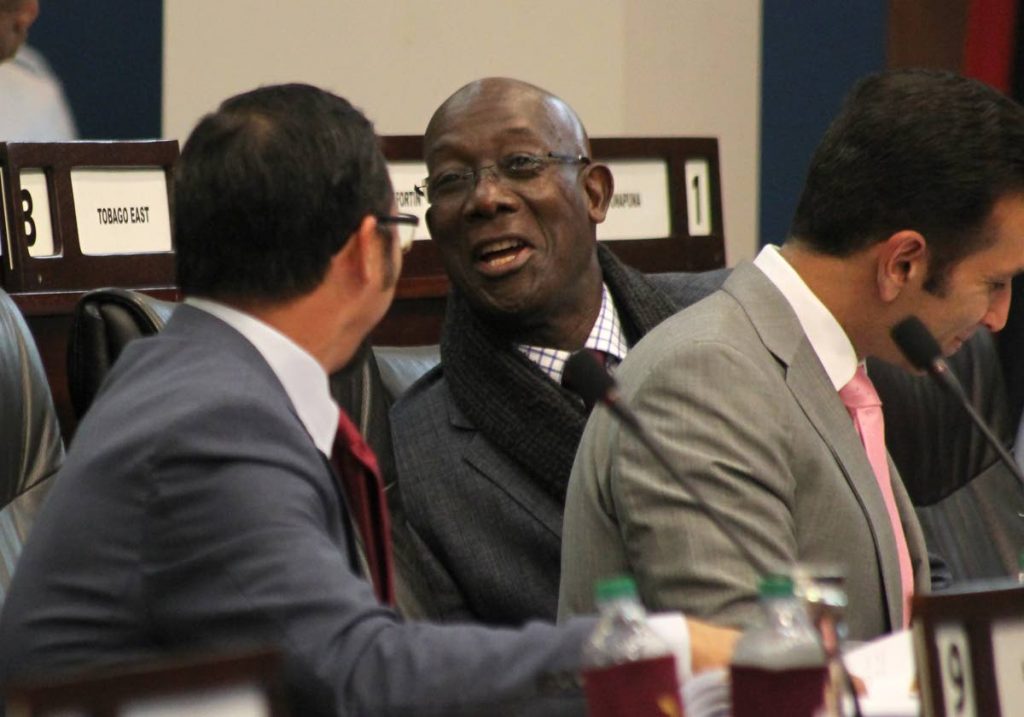Fear of Govt grab

WHILE the Government insisted the innocent had nothing to fear over a bill that allowed the seizure of property linked to crime or terrorism, the Opposition claimed it violated human rights and basic courtroom principles.
Attorney General Faris Al-Rawi piloted the Civil Asset Recovery and Management and Unexplained Wealth Bill, 2019 in the House of Representatives. He said the bill would take the profit out of the business of crime. Claiming Commissioner of Police Gary Griffith had said he had been chased out of the former cabinet for opposing such legislative reform, the AG predicted the Opposition would reject the bill.
“We expect them to come with the constitutionality talk, consultation talk, ask for a joint select committee, ask for more time.” Al-Rawi said the forfeiture of assets already obtains in existing laws such as the Proceeds of Crime Act, Dangerous Drugs Act, Anti-Gang Act and Anti-Terrorism Act, and in laws in 22 jurisdictions.
Al-Rawi claimed the bill was good law, and obeyed the Constitution and so did not need to be passed by three-fifths of MPs.
“This law infringes no three-fifths rights,” he said, to audible gasps of disbelief from the Opposition. The AG said under the Constitution, one can’t lose property rights “except by due process.” He assured he had duly considered the “innocent until proven guilty” principle and the idea of “reversal of the burden of proof.”
Al-Rawi insisted the bill could apply to offences done prior to its passage, and not be retrospective activity.
The AG reasoned that the State could seize suspected assets if it met the 50-50 balance of probabilities used in civil law (because the subject was property) and not the beyond reasonable doubt measure used in criminal cases (where the subject of which was a person.)
“It is only people who have criminal conduct that have to be concerned about this bill. The vast majority of people in this country are PAYE people. There is an easy and rational connection between their wealth and their assets.
“That is not the case however with the bandit on the corner, with gold-chain-wearing man who don’t have a job all day long driving Mercedes-Benz and BMWs. That is not the case with people that have umpteen assets that they cannot explain.” Those people must explain things in a court of law.
Caroni Central MP Dr Bhoe Tewarie agreed with the AG’s call to take the profit out of crime, but said the bill must be examined.
He said under the bill the state needed to meet only a low standard of proof, while the individual faced a great burden to prove his innocence.
“I think there’s an issue here we need to interrogate. Normally when you go before a court of law the level of proof you require is ‘beyond reasonable doubt.’ That does not appear in this.” Tewarie said the bill did not demand the state prove “clear and convincing evidence,” nor “a preponderance of evidence.” More so the State can act on mere “reasonable suspicion” rather than the more demanding level of “probable cause.”
“In my view there is a low standard of proof requirement. Is it right to set the bar so low?”
Tewarie said. “The presumption of innocence is very important. You can write legislation on the assumption that everybody is guilty.” Tewarie asked why the bill lets property be seized from a person not yet convicted of a crime.
“I want to ask the AG, is it reasonable to label something ‘criminal property’ if it is not aligned to a criminal prosecution and conviction?’”
He said in many states in the USA, a criminal conviction must first be proved before any property was seized by the state. Tewarie examined the mechanics of the bill.
He suggested the bill had an inconsistency in allowing the State to apply for confiscation of a property without notifying the suspect, that is ex parte, while also saying the suspect has a right to be heard, suggesting a three-fifths majority might in fact be needed for the bill to be passed validly in the House, Tewarie said, “The AG is too cavalier to say no constitutional laws are being broken.”


Comments
"Fear of Govt grab"